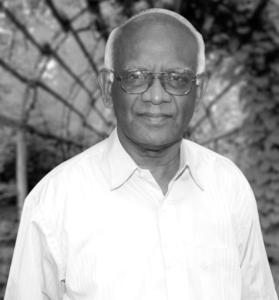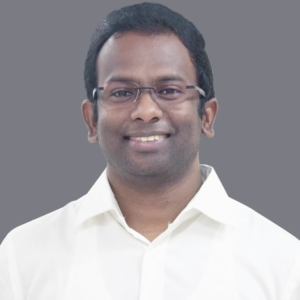What is Blink?
“Breaking barriers and transcending differences. En route to harmony.”
Blink Foundation is a nonpareil platform, bringing together the knowledge seekers and renowned scholars from all over the world. By doing this, we aim to acknowledge and celebrate differences among people. What is new and unique about us is that college students are trained to acquire this attitude first, and then they communicate the same to the school kids. This interaction gives rise to questions, which will be directed to the experts in various fields to provide succinct answers. This exchange takes place through our web portal. Blink has partnered with The Institute of Dialogue with Cultures and Religions (IDCR), Loyola College for taking this forward.
What We Do?
Blink has constructed a Value Education Ecosystem that promotes quest based learning using Design Thinking Method. It capacitates enthusiastic college students as peer educators. This ecosystem’s underlying principals are: Connect | Converse | Contribute | Co Act
Children are no longer taught to be blindly tolerant but equipped with analytical skills to reason and grow knowledge themselves. Our quest-based education encourages them to transform wellness education to be more than a monologue.
After educating and initiating intellectual discussion, the model also has space to facilitate action. Cohorts can express their ideas, opinions and feeling through our web portal.
The topics Blink deals with:
Glossary of Terms
Change Agent – Enthusiastic college students who share Blink’s mission and undergo training to present value education curriculum to school kids in order to develop a culture where people celebrate the difference.
Change Ambassador – Self-motivated teachers below 30 years of age will be trained with the necessary traits, and then vested with the responsibility to look after their school’s Change Cell.
Change Advocate – Change Agents who continue to be associated with Blink, even after completion of Change Class/College life. They motivate junior batches of College students to become Change Agents.
Change Class – School students who receive value education classes through Blink’s design thinking worksheets. Change class is the place, where we realize our objective.
Blink Cell – The platform inside colleges, where Foundation’s objectives are realised into action. It’s primary motive is to train the interested Change Agents through the cell. Presently Loyola and Stella Maris Colleges have their own cells.
Social Donor – Individuals who patronize Blink’s mission through financial contribution.
Knowledge Patron – Subject Matter Experts empanelled by Blink to provide age-appropriate and individual-specific answers to questions posed by blinkers through the web portal.
Knowledge Depository – Questions and answers discussed through Blink portal will be archived. The segmented question will be a depository, and could be retrieved using key words.
Founder’s Note
Blink Foundation’s aim is to promote intercultural and interreligious harmony, helping people to acknowledge and celebrate their differences. What is new and original about this project is that first of all college students are helped to acquire these attitudes and trained to communicate them to the school kids. Their teachers and parents too are involved. An interactive community is built up in this way, which also becomes a socially integrated and integrating community. In a world that is increasingly divided by conflicts of various kinds I think that this is an interesting initiative linking the knowledge-seekers and the knowledge-givers.

Fr. Michael Amaladoss
As a student I was searching for a lot of answers for a lot of questions that I raised to myself on issues that were necessary but not given the due importance. I happened to learn that this quest was not only mine but everyone’s. Then, I understood that ‘Tolerance leads to understanding; understanding leads to acceptance, acceptance leads to celebrating the difference.’ This lead the desire to create a platform for the youngsters to raise their unanswered questions, and to facilitate a virtual and real platform to connect, converse, contribute, to be convinced to co-act and to celebrate a well informed and inclusive culture.

Mr. Arun Fernandez